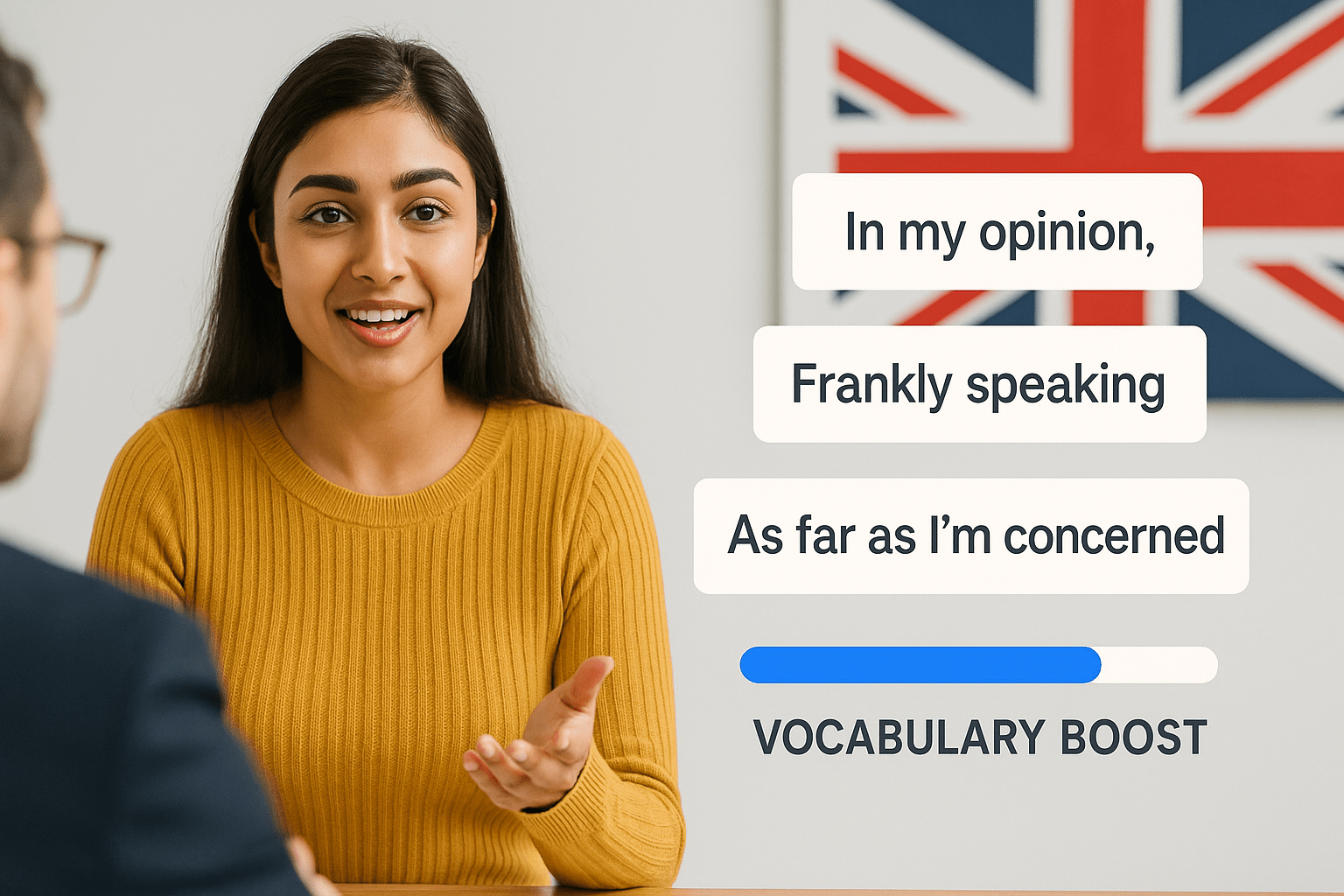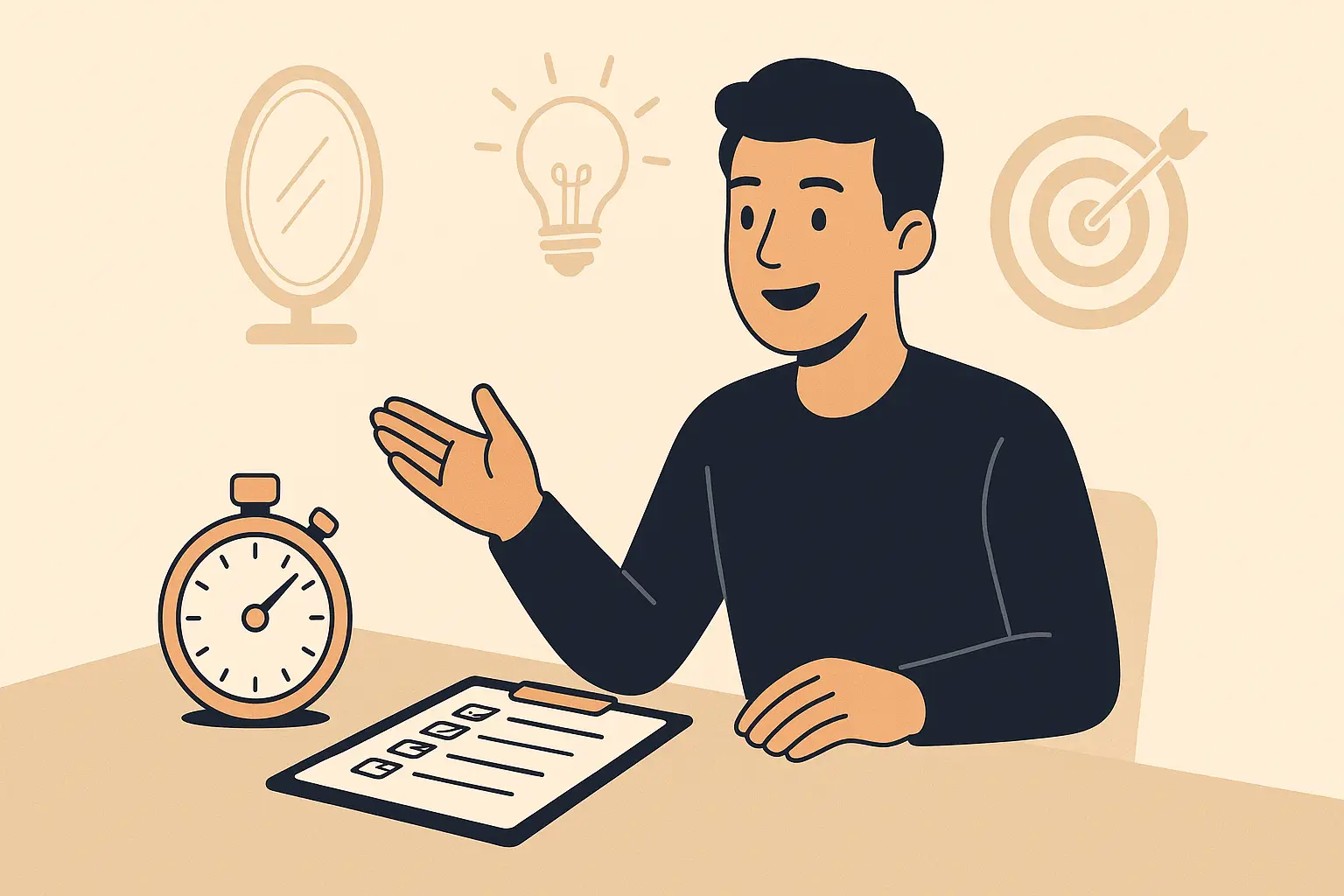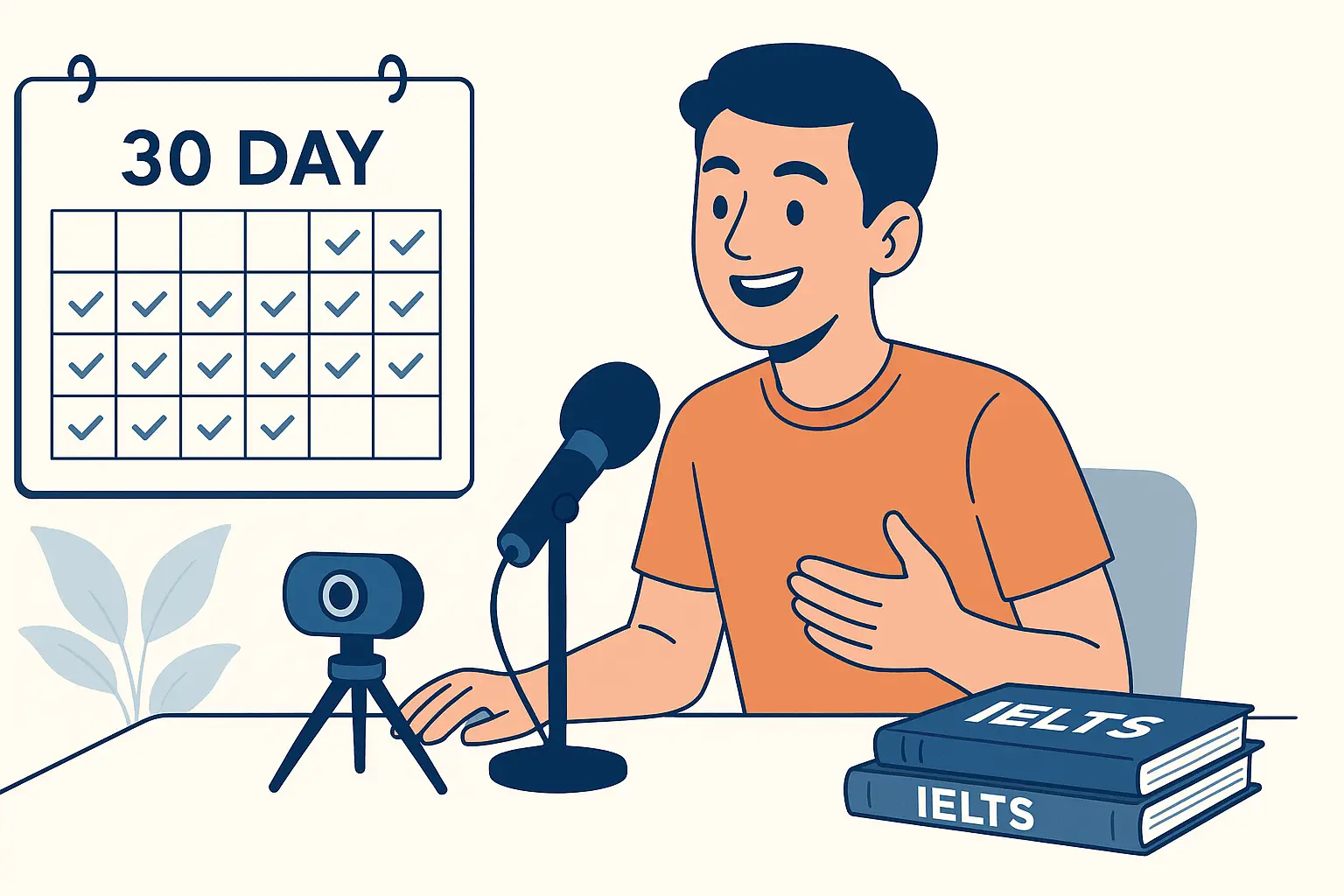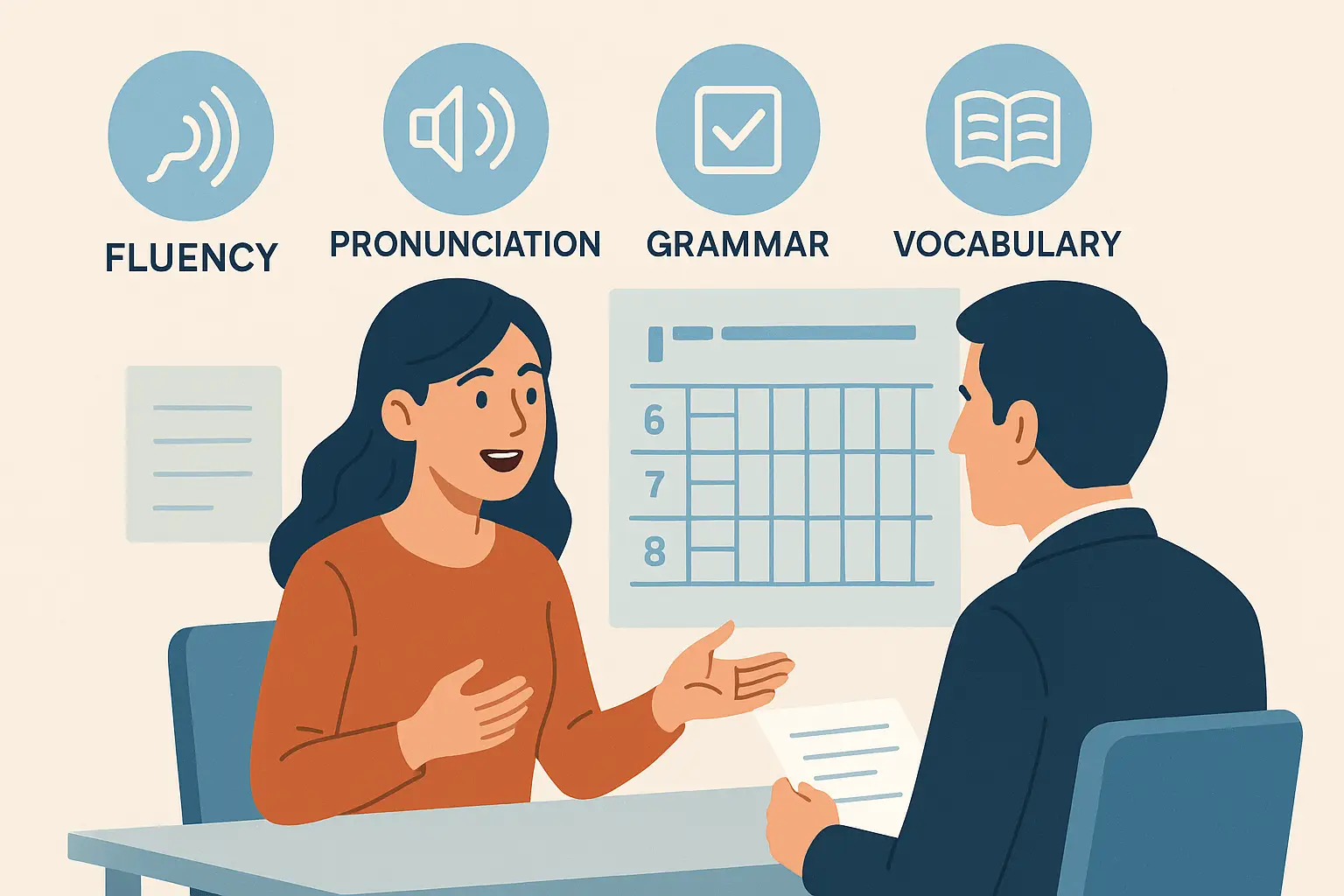IELTS Speaking Vocabulary is one of the most powerful tools for boosting your fluency, coherence, and confidence during the exam. As an international IELTS teacher who has worked with thousands of students from over 40 countries, I can confidently say that building the right vocabulary is often the key difference between a Band 6 and a Band 7.5+.
Most students struggle to find the right words under pressure. This guide will help you build, practise, and confidently use effective vocabulary in all three parts of the IELTS Speaking test.
Why IELTS Speaking Vocabulary Matters More Than You Think
When I ask students what makes them nervous about the Speaking section, the answer is usually the same:
“I can’t think of the right word.”
This hesitation can seriously affect your score in fluency, coherence, and lexical resource. But with strong, topic-specific vocabulary, you’ll not only express your ideas more clearly — you’ll also show the examiner that you’re a confident English communicator.
If you’re unfamiliar with the exam structure, take a moment to review the IELTS Speaking test format, and consider checking the official sites at IELTS.org, British Council IELTS, and IDP IELTS for registration and exam updates.
Strategies to Boost Your IELTS Speaking Vocabulary
1. Build Topic-Based Lexical Sets
One of the most effective ways to improve your IELTS Speaking Vocabulary is by clustering words by topic. For example, under the topic Environment, don’t just learn “pollution.” Learn:
- air quality
- carbon emissions
- sustainable solutions
- renewable energy
This approach helps expand both your vocabulary range and precision.
👉 Use this Topic-wise IELTS Speaking Vocabulary Guide to build your lexical sets effectively.
2. Use Functional Language and Natural Expressions
High Band scorers don’t just give answers — they explain, justify, and evaluate. That’s where expressions like these help:
- As far as I’m concerned
- To be honest
- One reason is that…
- Compared to…
These expressions enhance fluency and give your responses more depth.
👉 For more natural phrases, explore our IELTS Speaking Idioms and Phrases.
3. Upgrade Basic Word Choices
Using common words like “good” or “bad” too often can hurt your score. Try these alternatives:
- Good → impressive, effective, beneficial
- Bad → harmful, disappointing, inefficient
- Nice → pleasant, memorable, enjoyable
A student of mine replaced “good experience” with “unforgettable moment,” and her confidence — and Band score — improved dramatically.
IELTS Speaking Vocabulary by Test Section
🔹 Part 1 – Everyday Topics
Even though Part 1 covers familiar topics, you still need varied and rich vocabulary:
- Hobbies: “I unwind by sketching in my free time.”
- Work: “I manage a small team at a digital marketing agency.”
- Home: “I live in a quiet suburb just outside the city centre.”
👉 Practise more using our Part 1 Sample Questions and Band 7+ Phrases.
🔹 Part 2 – Cue Card
This is your chance to use descriptive and expressive vocabulary:
- Time references: “Back in 2019,” “A few years ago…”
- Adjectives: “breathtaking,” “nerve-wracking”
- Linking phrases: “because,” “which is why,” “as a result”
👉 Learn to deliver a smooth 2-minute answer with our Cue Card Fluency Strategy.
🔹 Part 3 – Complex Questions
In Part 3, you’ll need more academic and analytical vocabulary.
Use:
- Academic terms: globalisation, inequality, innovation
- Opinion phrases: “It’s debatable whether…”
- Complex connectors: “In contrast,” “On the other hand”
👉 Master this section with our Part 3 Opinion Strategy.
How to Practise IELTS Speaking Vocabulary Effectively
I recommend the Record, Review, Reuse method:
- Record new words and phrases in a speaking journal
- Review weekly using IELTS-style questions
- Reuse them in mock speaking sessions (with a timer!)
Apps like Anki or Quizlet can help build your flashcards, but make sure you’re using the words in speech, not just memorising.
👉 Learn how to sound more native with our IELTS Speaking Collocations Guide.
👉 Unsure when to use formal vs informal expressions? Read this Formal vs Informal Language in IELTS Speaking.
FAQs About IELTS Speaking Vocabulary
Q: Can I use idioms in IELTS Speaking?
A: Yes — as long as they sound natural. Use idioms like “once in a blue moon” or “it slipped my mind”, but avoid sounding forced.
Q: Does using difficult words help me score higher?
A: Only if used correctly. It’s better to say “practical solution” than “pragmatic attempt” if you’re unsure of the meaning.
Q: What should I do if I forget a word?
A: Paraphrase. For example, if you forget “vaccine,” say “the injection that protects against disease.” This shows strong lexical resource.
Q: Should I memorise full answers?
A: No. Examiners can spot memorised responses. Instead, focus on learning useful phrases and flexible structures.
Final Thoughts
IELTS Speaking Vocabulary isn’t about knowing 10,000 words. It’s about knowing the right words, using them naturally, and applying them to real test situations.
I’ve seen students improve from Band 5.5 to 7.5 in just six weeks by changing their vocabulary habits and using targeted strategies like the ones above.
Whether you’re preparing for small talk in Part 1, storytelling in Part 2, or deep discussions in Part 3 — the words you choose shape how fluent and confident you sound.
And remember: IELTS doesn’t test how many words you know — it tests how well you use them.






4 Responses